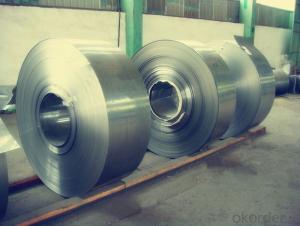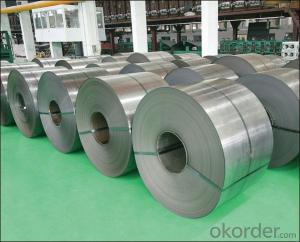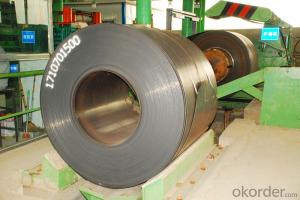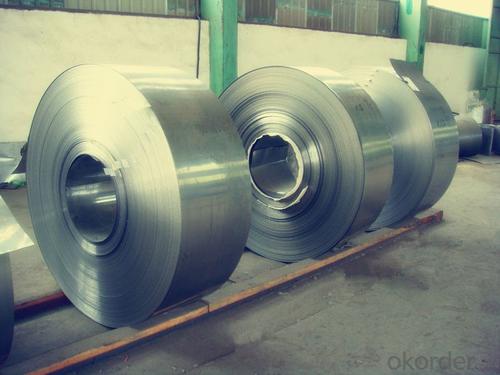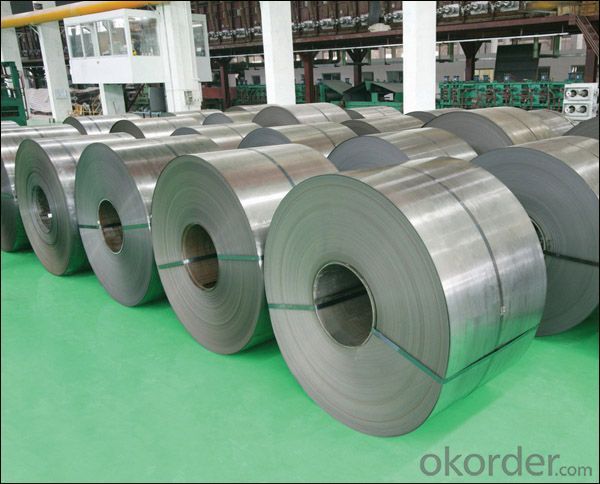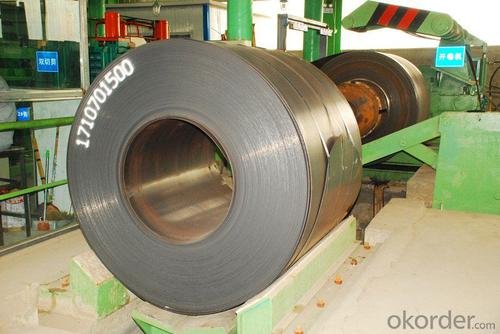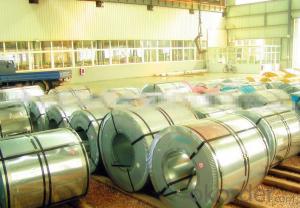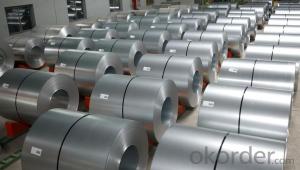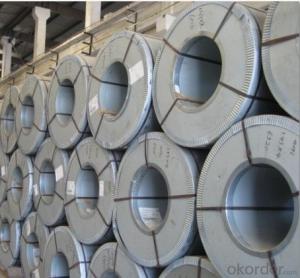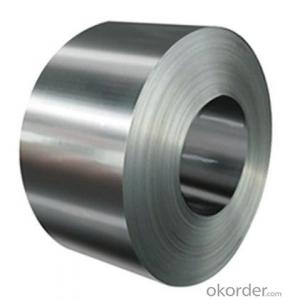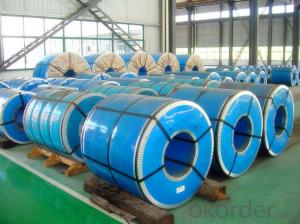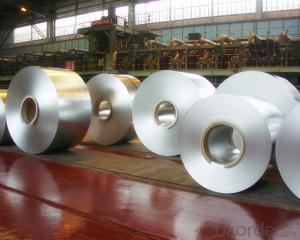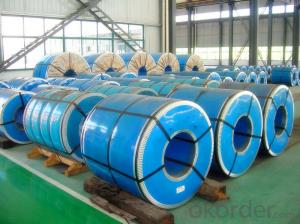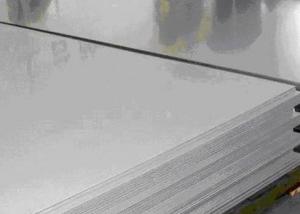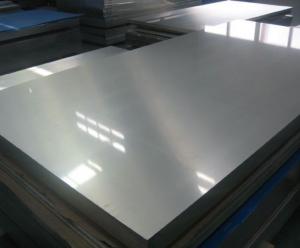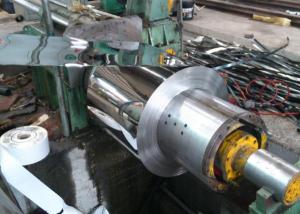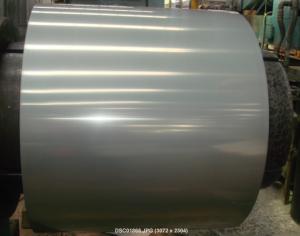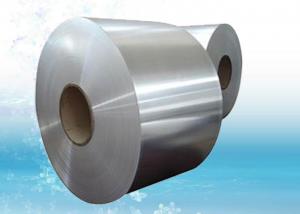Stainless Steel Coil 201 Hot / Cold Rolled Narrow Coil
- Loading Port:
- Lianyungang
- Payment Terms:
- TT OR LC
- Min Order Qty:
- 400 m.t.
- Supply Capability:
- 5000 m.t./month
OKorder Service Pledge
OKorder Financial Service
You Might Also Like
Hot Rolled Stainless Steel Coil 201 Narrow Strip No.1 Finish
Packaging Detail: For customer's requirement
Delivery Detail: 10-30days
201 Hot Rolled Stainless Steel Coil Specifications
THK:2.3/2.5/3.0/4.0mm
Width:485/510/550/610/1010/1240mm
Face:No.1
201 Hot rolled stainless steel Coil Application
Stainless steel is a production which not easy rust,acid resistance and corrosion resistance,so it is widely
used in light industry,heavy industry,daily necessities and the decoration industry.
201 Hot Stainless Steel Coil Chemical Composition(WT%)
(C):≤0.15, (Si):≤0.75, (Mn):5.5~7.50, (Cr):16.0~18.0, (N):≤0.25, (Ni):3.50~5.50, (P):≤0.060, (S):≤0.030
201 Hot Rolled Stainless Steel Coil
Strength Of Extension:100,000 To 180,000 Psi;
Yield Strength:50,000 To 150,000 Psi
Elongation :55 To 60%;
Modulus Of Elasticity:29,000,000 Psi;
Density : 280lbs/Cubic Inch(7.93g/Cm3)
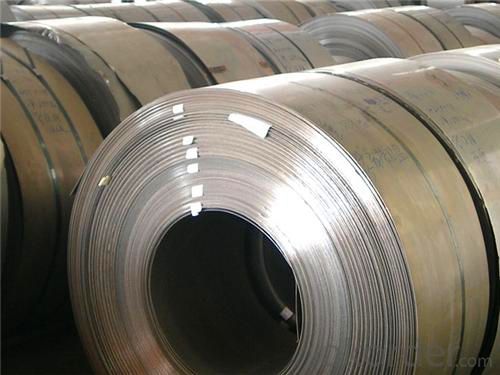
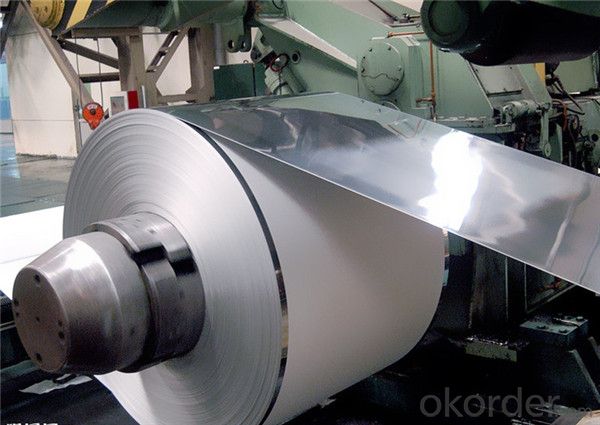
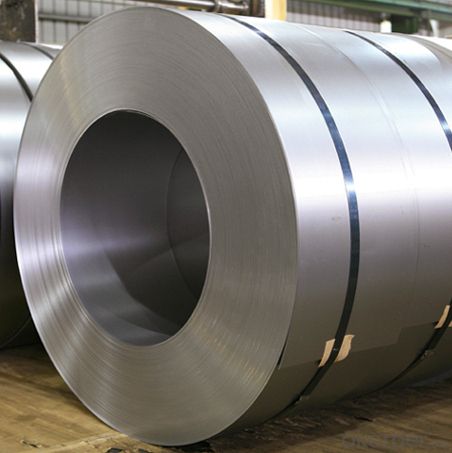
- Q: What are the recommended guidelines for machining 111 stainless steel strips?
- The recommended guidelines for machining 111 stainless steel strips typically include using a sharp cutting tool, maintaining proper coolant and lubrication, controlling cutting speed and feed rate, and ensuring proper clamping and fixturing to minimize vibrations. Additionally, it is important to monitor and adjust the machining parameters based on the specific grade of the stainless steel and the desired surface finish.
- Q: Where can stainless steel strips be purchased?
- Stainless steel strips can be purchased from various sources. One option is to visit local hardware stores or specialty metal suppliers that carry a wide range of stainless steel products. These establishments often have a variety of sizes and grades of stainless steel strips available for purchase. Additionally, online retailers and e-commerce websites offer a convenient way to buy stainless steel strips. Popular platforms such as Amazon, eBay, or Alibaba have numerous sellers that offer stainless steel strips in different dimensions and quantities. It is essential to ensure that the seller has a good reputation and provides accurate product descriptions to ensure the quality and suitability of the stainless steel strips being purchased.
- Q: What are the factors affecting the thermal conductivity of 111 stainless steel strips?
- The factors affecting the thermal conductivity of 111 stainless steel strips include the composition and microstructure of the steel, the presence of alloying elements, the grain size and orientation, the temperature, and the presence of impurities or defects in the material.
- Q: Are stainless steel strips suitable for welding electrodes?
- Indeed, welding electrodes can be made from stainless steel strips. Stainless steel is frequently employed in welding because of its exceptional attributes, including remarkable strength, resistance to corrosion, and ability to withstand high temperatures. Shaping stainless steel strips into electrode forms is a simple task, and they are compatible with various welding methods like shielded metal arc welding (SMAW), gas tungsten arc welding (GTAW), and gas metal arc welding (GMAW). Moreover, stainless steel electrodes are renowned for their impressive durability, long lifespan, and exceptional arc stability, rendering them an optimal selection for welding purposes in industries such as construction, automotive, and manufacturing.
- Q: How do stainless steel strips handle vibration and shock?
- The exceptional resistance to vibration and shock of stainless steel strips is widely recognized. This is primarily due to their inherent mechanical properties and composition. Stainless steel boasts high strength and a low elastic modulus, endowing it with the capacity to absorb and distribute energy upon impact or when exposed to vibration. This characteristic enables stainless steel strips to effectively dampen vibrations and impede the transmission of shockwaves. Moreover, stainless steel exhibits remarkable resistance to corrosion, guaranteeing the durability and longevity of the strips even in harsh environments. This corrosion resistance also works to uphold the structural integrity of the material, rendering it less susceptible to damage from vibrations and shocks. Furthermore, stainless steel strips can be manufactured with specific alloys and finishes that further amplify their ability to withstand vibration and shock. For instance, certain grades of stainless steel can undergo heat treatment or cold rolling to fortify their strength and mitigate the risk of deformation upon impact. In summary, stainless steel strips possess a comprehensive set of attributes that equip them to handle vibration and shock adeptly. These include their high-strength properties, low elastic modulus, corrosion resistance, and the capacity to tailor their composition to suit specific applications.
- Q: Can stainless steel strips be used in the production of marine propellers?
- Yes, stainless steel strips can be used in the production of marine propellers. Stainless steel is highly resistant to corrosion, making it an ideal material for marine applications. Its strength and durability also make it suitable for withstanding the harsh conditions and forces experienced by propellers in marine environments.
- Q: Can stainless steel strips be used in household appliances?
- Household appliances can indeed utilize stainless steel strips. The exceptional resistance to corrosion, durability, and appealing appearance make stainless steel a popular choice in appliance manufacturing. It is common to find stainless steel strips incorporated into different parts of household appliances like refrigerators, dishwashers, ovens, and stovetops. These strips often contribute to the construction of appliance doors, handles, control panels, and trims. By employing stainless steel strips, appliances acquire a contemporary and polished appearance while also possessing the necessary strength and resilience to endure the rigors of daily use in a household environment.
- Q: What are the limitations of using 111 stainless steel strips?
- There are several limitations associated with using 111 stainless steel strips: 1. Corrosion Resistance: While stainless steel is generally known for its corrosion resistance, 111 stainless steel strips may not have the same level of resistance as other grades. This can make them more susceptible to corrosion in certain environments, such as those with high levels of chloride or sulfur. 2. Strength and Hardness: Compared to other stainless steel grades, 111 stainless steel strips may have lower strength and hardness properties. This can limit their suitability for applications that require high tensile strength or resistance to wear and abrasion. 3. Weldability: Welding 111 stainless steel strips can be challenging due to their higher carbon content. This can result in the formation of carbides during the welding process, leading to reduced weldability and potential brittleness in the heat-affected zone. 4. Magnetic Properties: Unlike some other stainless steel grades, 111 stainless steel strips are generally magnetic. This can limit their use in certain applications where non-magnetic properties are required, such as in electronic devices or sensitive equipment. 5. Availability and Cost: 111 stainless steel strips may be less readily available in the market compared to more common grades. This can make them harder to source and potentially more expensive. 6. Temperature Limitations: 111 stainless steel strips may have limitations when exposed to high temperatures. They may exhibit reduced strength and increased susceptibility to oxidation or scaling, which can restrict their use in high-temperature applications. It is important to consider these limitations when selecting stainless steel strips for specific applications, as they can impact the performance, durability, and cost-effectiveness of the material.
- Q: Are 111 stainless steel strips resistant to intergranular corrosion?
- Yes, 111 stainless steel strips are resistant to intergranular corrosion. 111 stainless steel is a type of austenitic stainless steel that contains high levels of chromium and nickel, which provide excellent resistance to corrosion. The intergranular corrosion resistance of stainless steel is determined by its carbon content and the presence of stabilizing elements such as titanium or niobium. 111 stainless steel strips typically have low carbon content, which helps prevent the formation of chromium carbide precipitates along the grain boundaries, thus reducing the susceptibility to intergranular corrosion. Additionally, the high chromium and nickel content in 111 stainless steel promote the formation of a protective oxide layer on the surface, further enhancing its resistance to corrosion. Therefore, 111 stainless steel strips are generally considered to be highly resistant to intergranular corrosion.
- Q: What are the common uses of stainless steel strips in the aerospace industry?
- Stainless steel strips are commonly used in the aerospace industry for a variety of applications. They are utilized in the production of aircraft components such as fuel lines, exhaust systems, fasteners, and structural parts. The resistance to corrosion and high temperature properties of stainless steel make it an ideal material choice for these critical aerospace applications.
Send your message to us
Stainless Steel Coil 201 Hot / Cold Rolled Narrow Coil
- Loading Port:
- Lianyungang
- Payment Terms:
- TT OR LC
- Min Order Qty:
- 400 m.t.
- Supply Capability:
- 5000 m.t./month
OKorder Service Pledge
OKorder Financial Service
Similar products
Hot products
Hot Searches
Related keywords
